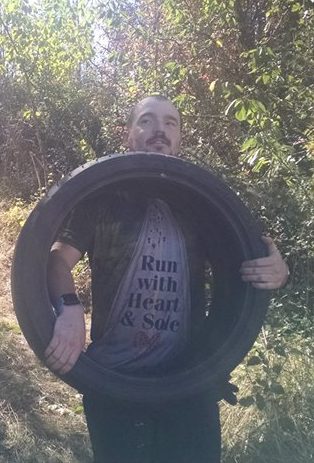By Jeremy Mulcahy-Hill, Assistant Fitness Director, North County Recreation District
What if I told you that the benefits of exercise go beyond fitting into that pair of jeans you’ve been holding on to? Fitness has the ability to reshape our lives. From magazines, books, and blog posts the key emphasis is generally focused on the physical benefits. The ability to transform one’s body seems to have captured the attention of the world. The changes that exercise can invoke internally are seemingly second to those of external change.
During a workout not only does our body change, but so do our minds. We experience personal accomplishment on a daily basis through exercise. Whether it’s showing up to the gym, setting a new personal best, or trying a new movement you’ve been curious about. These little victories add up, turning the tide of whatever battle you might be dealing with. Stress, anxiety, and depression, the trifecta of misery.
This battle of mental mettle goes a bit deeper though. These small, confidence boosting wins for “team you” play a part in the bigger mental health picture. Physical fitness also helps us to increase things other than the size of our biceps. Our brain is one of our hardest working muscles and exercise puts it through its paces. Research has shown that over time exercise can be an effective treatment for major depressive disorder, also known as depression. With most treatment for this sometimes devastating disorder, the hippocampus is enlarged. This special little piece of our cognitive puzzle is the power house from which serotonin is released. Serotonin is a little chemical in our body that helps us have a feeling of satisfaction and fullness and which lowers anxiety and aggression. Cool, huh? On top of that, exercise increases chemicals released in our mood centers. Norepinephrine, commonly known as “the fight or flight” chemical, increases arousal, focus, and attention. Then there is Dopamine, our body’s way of rewarding us. This little guy helps drive motivation, enthusiasm, and focus. All of this means that exercise is a great first-course of action to defend against depression. We also know that it is a great addition to other interventions for more severe cases.
Bringing this package of life-changing potential together can start a chain reaction in our day-to-day lives. Small victories build to bigger wins. This helps to build up confidence, a cornerstone of positive self-talk. Add in our body’s chemical release mechanisms and you can begin to see the truly amazing way that exercise can change one’s life immensely. So, next time you’re feeling down, anxious, or stressed out, take a walk, go for a jog, hit the weights, or unwind with some yoga. Your body will thank you and you’ll feel all the better for it.

